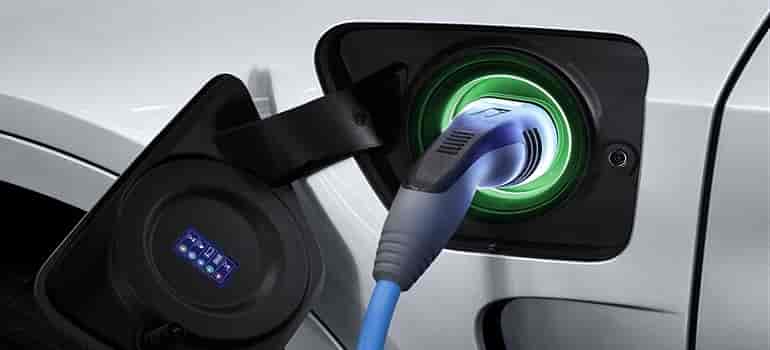
BIS Research in its latest market research report forecasts the global electric vehicles battery market to reach $93.94 billion by 2026. The research firm notes that the demand for electric cars is increasing rapidly, with the global stock numbers crossing 2 million in 2016 after crossing 1 million in 2015. The expected growth in the market for EV batteries is attributed to the increasing collaborations between the key component manufacturers and rising number of OEMs. Moreover, falling battery prices and improved charging infrastructure are expected to be the key factors in the growth of the market.
The government bodies are actively promoting the usage of electric vehicles to reduce high emission levels.
Batteries have been used as secondary power sources ever since the introduction of the first automobile. The introduction of hybrid vehicles in the market further increased the importance of battery in the market as the battery was responsible for energy saving functions as well as the conventional electrical operations within the automobile. As the demand for conventional vehicles increased rapidly, the conventional lead-acid battery used in gasoline-powered vehicles dominated the market for batteries. (Read Interview with Manu Kumar, Head of Marketing, Hero Electric Vehicles PVT. LTD)
BIS Research in its report notes that the evolution of Lithium-ion technology has fuelled the growth rate for batteries over the last two decades. While initial hybrids used Nickel Metal Hydride (NiMH) batteries, Li-ion batteries have been the primary solutions for automakers to power Plug-In Hybrid Electric Vehicles (PHEVs) and Battery Electric Vehicles (BEVs). (Read Interview with Awadhesh Kumar Jha, Vice President, Charge & Drive & Sustainability, Fortum India)
The high energy density and charge retention capacity along with low maintenance are some of the benefits that have accelerated the growth of Li-ion as a battery technology. Automobile manufacturers introducing BEVs and PHEVs in the market are further enhancing the technology and are anticipated to offer Li-ion powered solutions as a primary power source in their vehicles within the forecast period.
According to Surabhi Rajpal, Senior analyst at BIS Research, “The current scenario has seen the dominance of Lithium-ion batteries as the primary power source for pure electric vehicles as well as PHEVs. While other alternate battery technologies such as Nickel Metal Hydride and Hydrogen fuel cells are also present in the market, Lithium-ion technologies are expected to be the most prominent in terms of usage. Factors such as high energy density, long cycle life, and relatively higher performance parameters make lithium-ion technologies the most lucrative battery system available in the market.”
The research firm in its report has divided the market on the basis of propulsion type, component type, vehicle type, and by different geographical regions. The global electric vehicles battery market by propulsion type has been categorized into: Battery Electric Vehicle (BEV), and Plug-in Hybrid Electric Vehicle (PHEV). The battery market for BEV held the highest share and accounted for 71.3% share in 2016, and is also expected to grow at a faster rate as compared to PHEV. (Read Interview with Rushen Chahal, Founder, Hriman Motors LLP.)
Factors, such as the growing demand for zero emission vehicles, government initiatives, and improved charging infrastructure are responsible for the growth of BEV and thus, leading to the growth of battery market for BEV.
During the forecast period, the electric vehicle battery market for passenger cars is expected to grow at a faster rate as compared to commercial vehicles owing to factors, such as increasing demand for electric cars, stringent governmental regulations, and high energy density of batteries said the firm in a statement.
BIS Research in its report notes that the Asia-Pacific (APAC) region dominated the global electric vehicles battery market by value and accounted for a share of 79.5% in 2016. The APAC automotive electric vehicles battery market is majorly dominated by the South Asian countries comprising of some of the biggest automotive producers in the world.
The development of electric vehicles is gaining attention due to collective efforts from the government and manufacturers to initiate reforms and further enhance technologies which will promote the sale of these vehicles and make them economically efficient for use.
The report also sheds light upon the current scenario of the market, discussing the various patents, regulations, and technological advancements that are encouraging the growth of the entire EV ecosystem. A detailed analysis of the various start-ups within the EV ecosystem is also provided along with their impact on the overall automotive industry.
For more information click here

